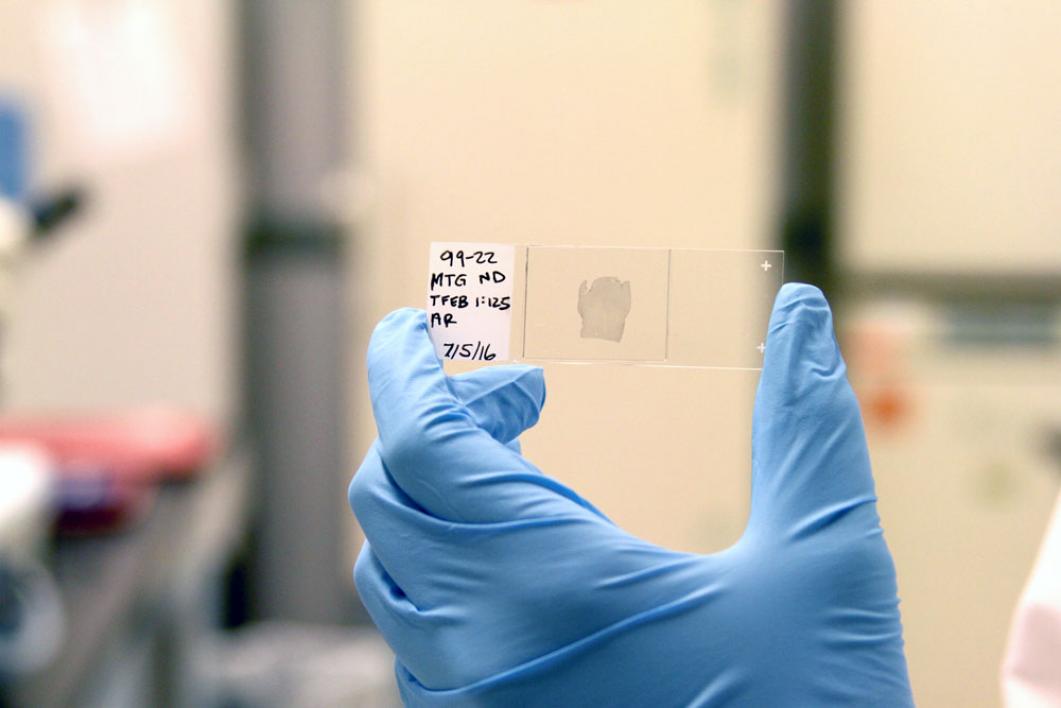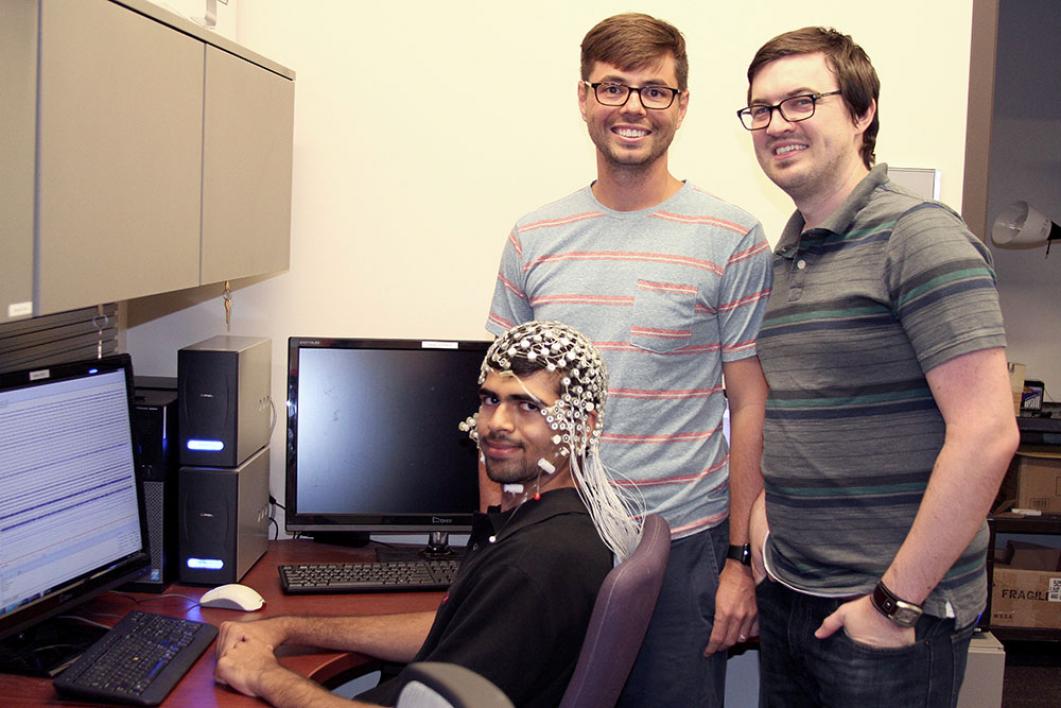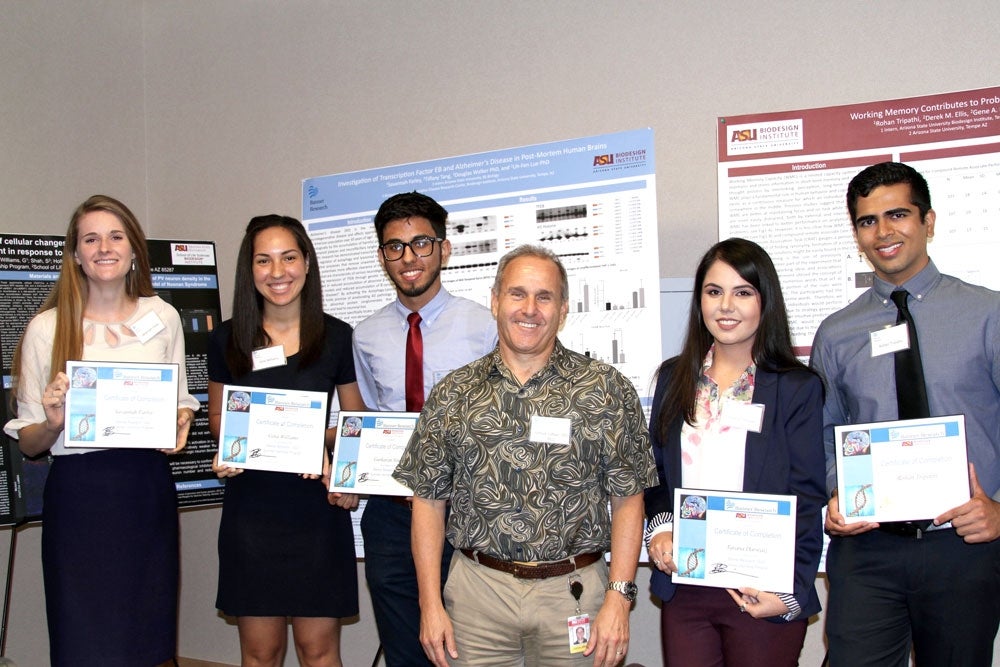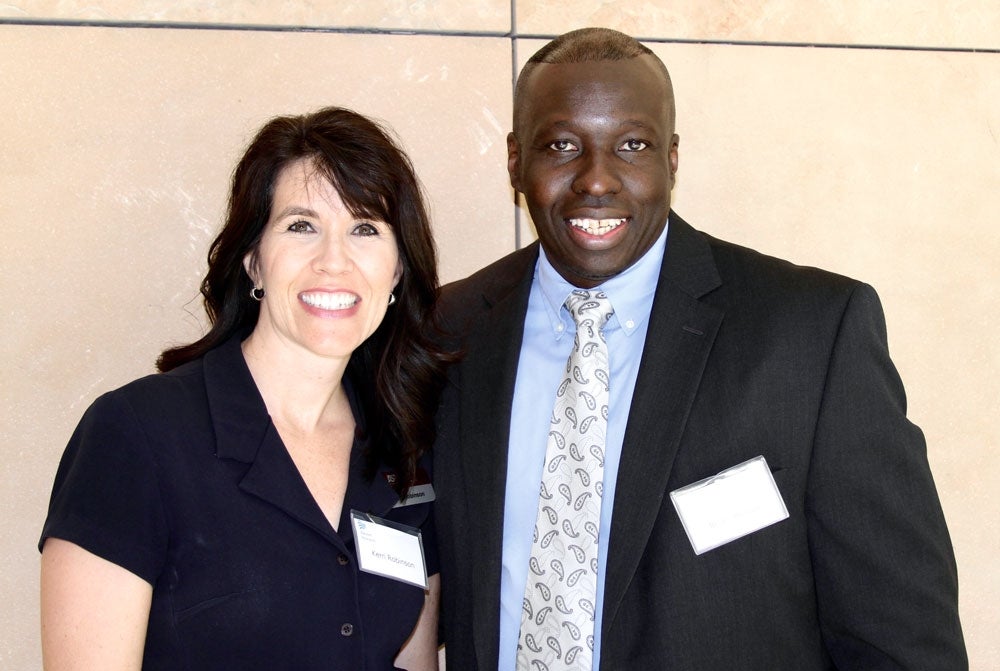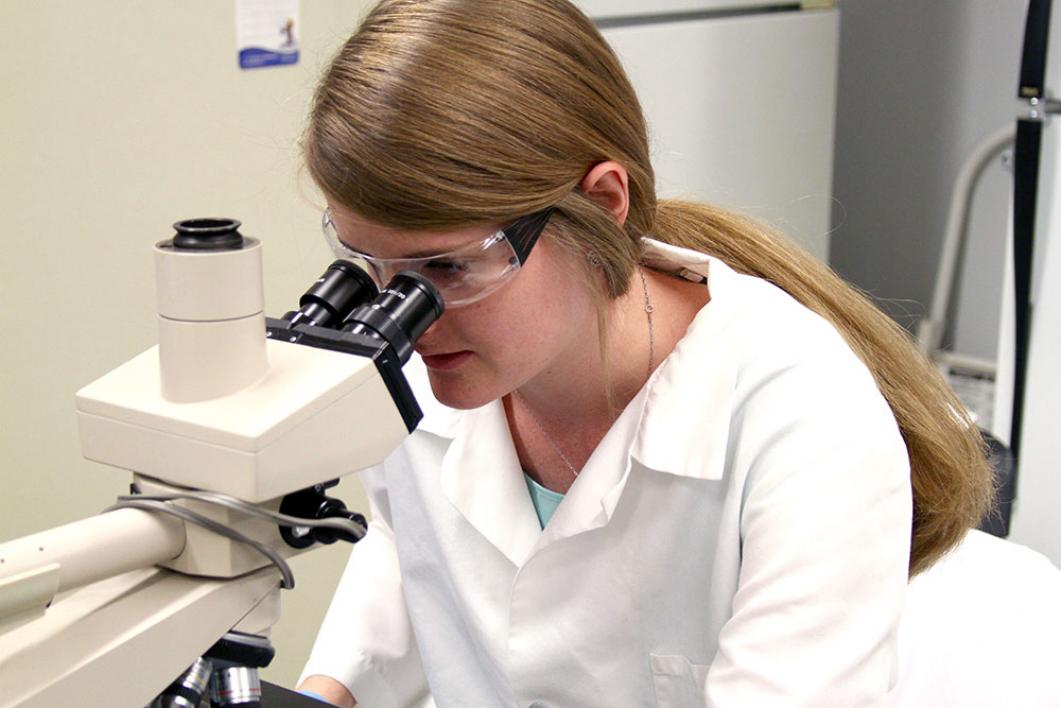Rather than swimming and picnics, 19 students conducted brain research for eight weeks this summer as part of the Banner Research/ASU-Biodesign Summer Internship Program.
Students ranging from high school to college levels competed for projects in clinical, basic laboratory or computational medical imaging research to explore the aging brain. They were then matched with scientists and technologists at Banner Sun Research Institute, ASU Biodesign Institute or Banner Alzheimer’s Institute and paid $1,000 for completing the program.
“Every year, we look forward to seeing how students grow after spending time with mentors in labs,” said Brian Browne, education and outreach director at Banner Research. “For many, this experience solidifies their interests to pursue careers in science and medicine.”
Banner started the program 14 years ago. Since then, 210 participants have put on lab coats for a summer of science. Subsequently, 94 percent of interns have pursued degrees in science or medicine. This was the first year that the Biodesign Institute participated by hosting five students.
“I was nervous and excited about working with brains,” said Savannah Farley, an ASU senior studying biology and philosophy.
The internship helped Farley, who is planning to attend graduate school next year, to narrow her scientific career to the health field.
Farley worked with scientists Doug Walker and Lih-Fen Lue in the ASU-Banner Neurodegenerative Diseases Research Center at ASU’s Biodesign Institute. Their teams engaged Farley on a project to learn about transcription factor EB, a protein that regulates genes involved in cellular degradation of unwanted proteins. Farley researched where the protein presents in the brain and noted differences between brains of patients with and without Alzheimer’s disease.
“The very first day, I was working with human brain tissues,” explained Farley. “Soon, I was examining tissue slices to locate the antibody under study. It was satisfying to do replication completely on my own.”
Desert Mountain High School senior Rohan Tripathi applied for the internship because of his interest in medicine, but he found out that he “is more of a math guy.” Tripathi worked with psychologist Gene Brewer in the ASU College of Liberal Arts and Sciences. His project was to examine differences in episodic memory using behavioral and EEG data. He spent most of his time deciphering data from participants who wore EEG caps to test brain activity.
“In the classroom, it is all hypothetical. Here, I got to see real science,” said Tripathi. “My mentors have helped me better understand the world.”
There is community demand to expand the program to accommodate more students into scientific labs. This year, more than 400 students applied from all over the country and only 19 were accepted. Program organizers for 2017 are seeking contributions to support a student.
“Having the opportunity to explore science through a hands-on clinical internship can open young minds to possibilities they may have never considered,” said Kerri Robinson, program director at the Biodesign Institute.
“This experience turned out to be much more than I expected — the information I learned will last for many years,” Farley said.
Applications for the 2017 internship will be available January, with applications due in March.
Written by Julie Kurth, Biodesign Institute
Top photo: Rohan Tripathi spends most of his time deciphering data from participants who wore EEG caps to test brain activity.
More Science and technology

ASU professor breeds new tomato variety, the 'Desert Dew'
In an era defined by climate volatility and resource scarcity, researchers are developing crops that can survive — and thrive — under pressure.One such innovation is the newly released tomato variety…

Science meets play: ASU researcher makes developmental science hands-on for families
On a Friday morning at the Edna Vihel Arts Center in Tempe, toddlers dip paint brushes into bright colors, decorating paper fish. Nearby, children chase bubbles and move to music, while…

ASU water polo player defends the goal — and our data
Marie Rudasics is the last line of defense.Six players advance across the pool with a single objective in mind: making sure that yellow hydrogrip ball finds its way into the net. Rudasics, goalkeeper…



